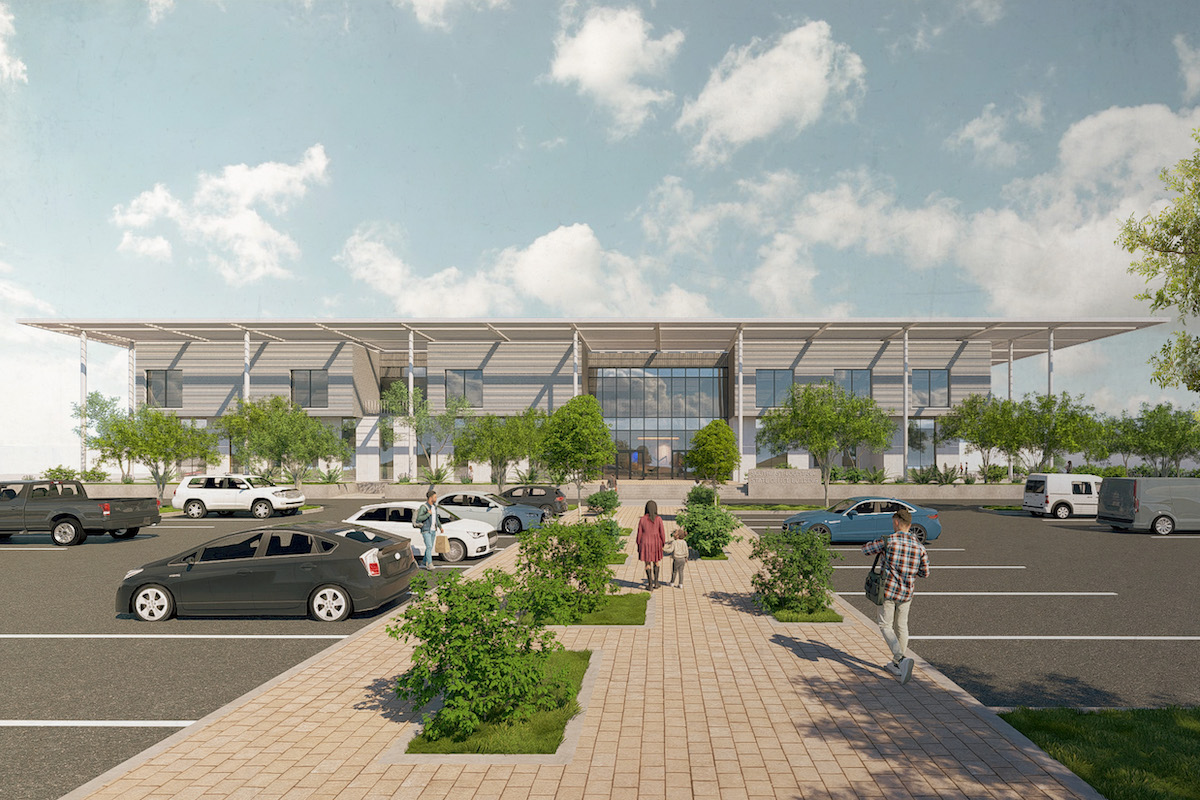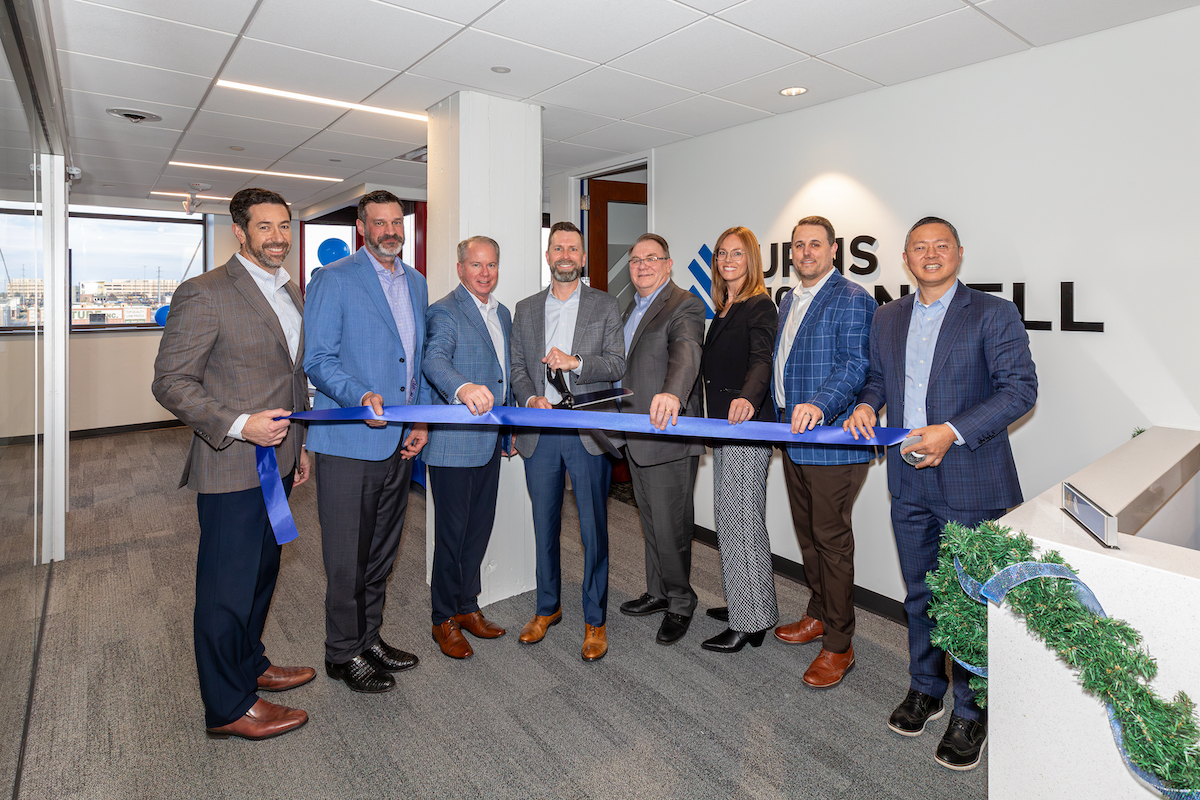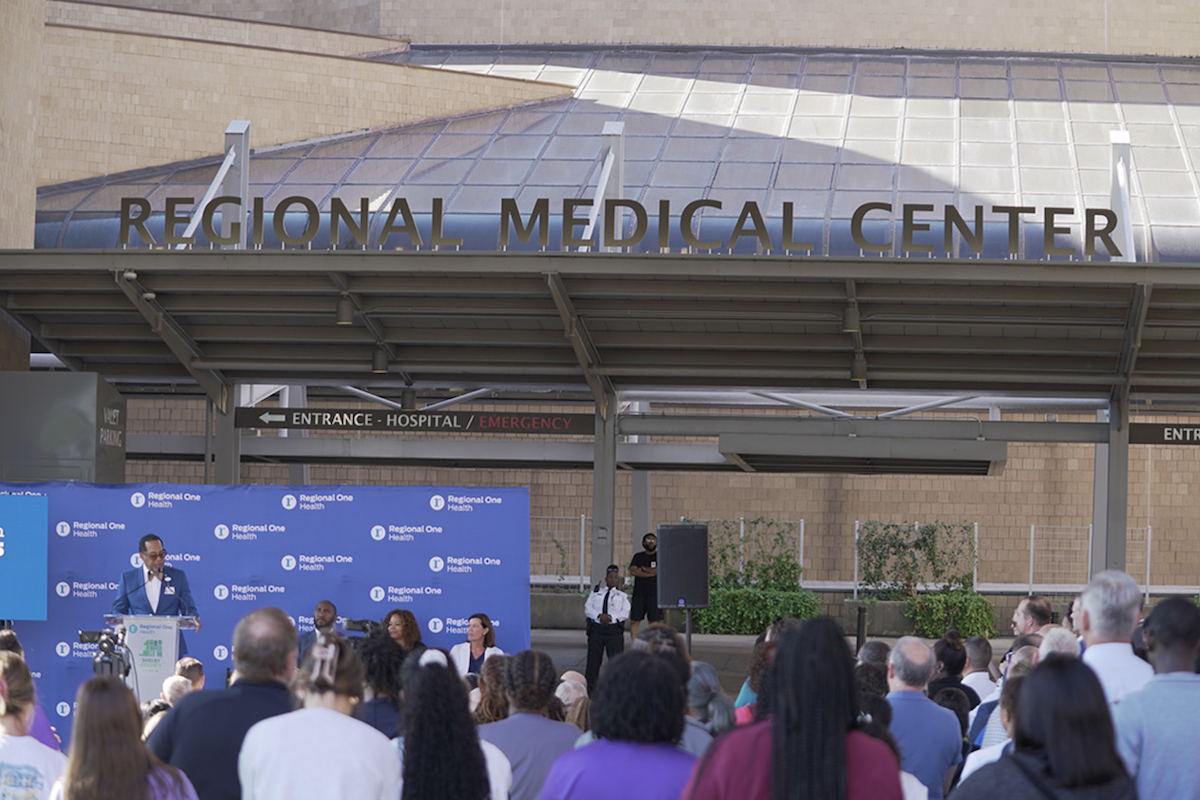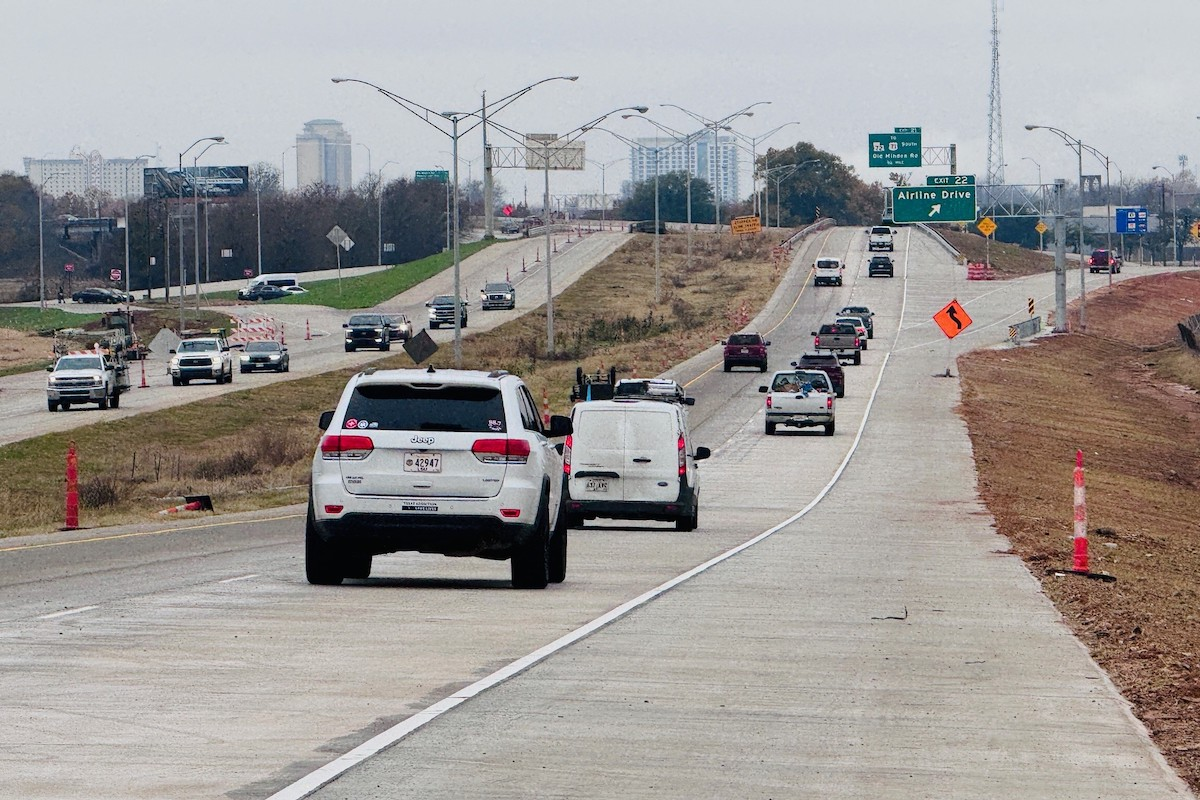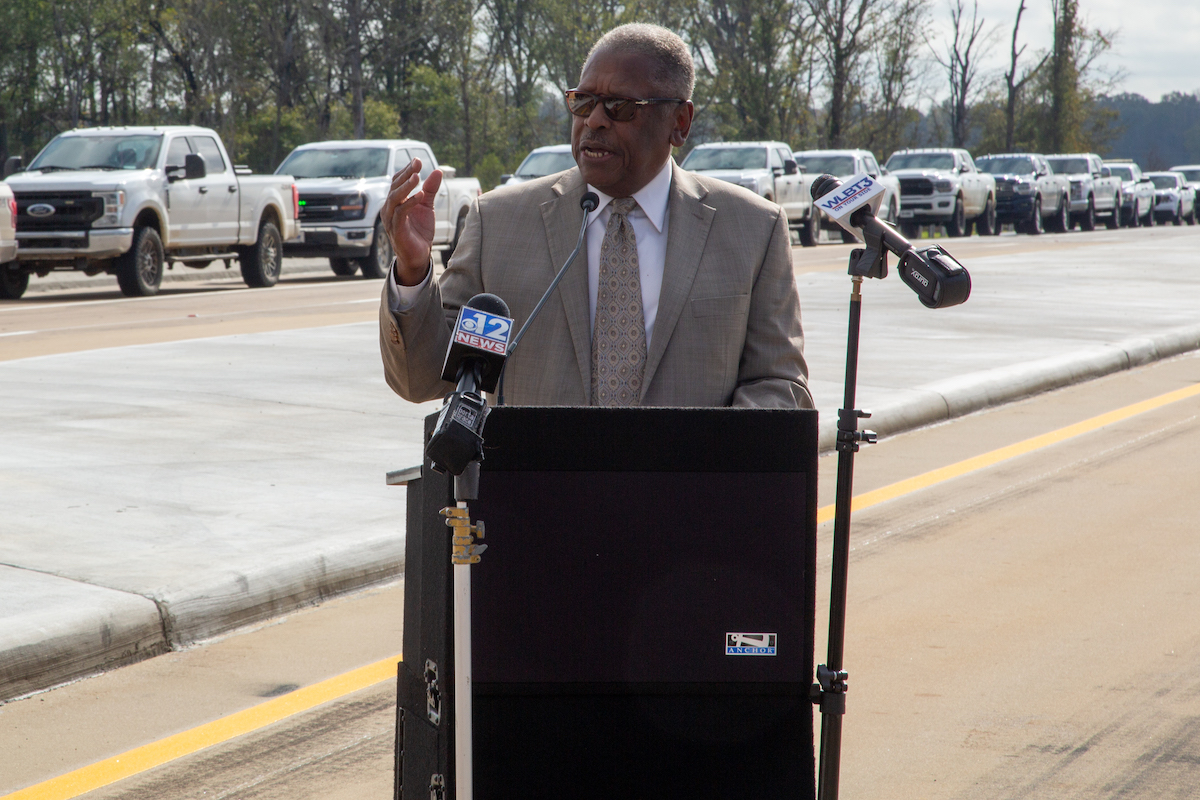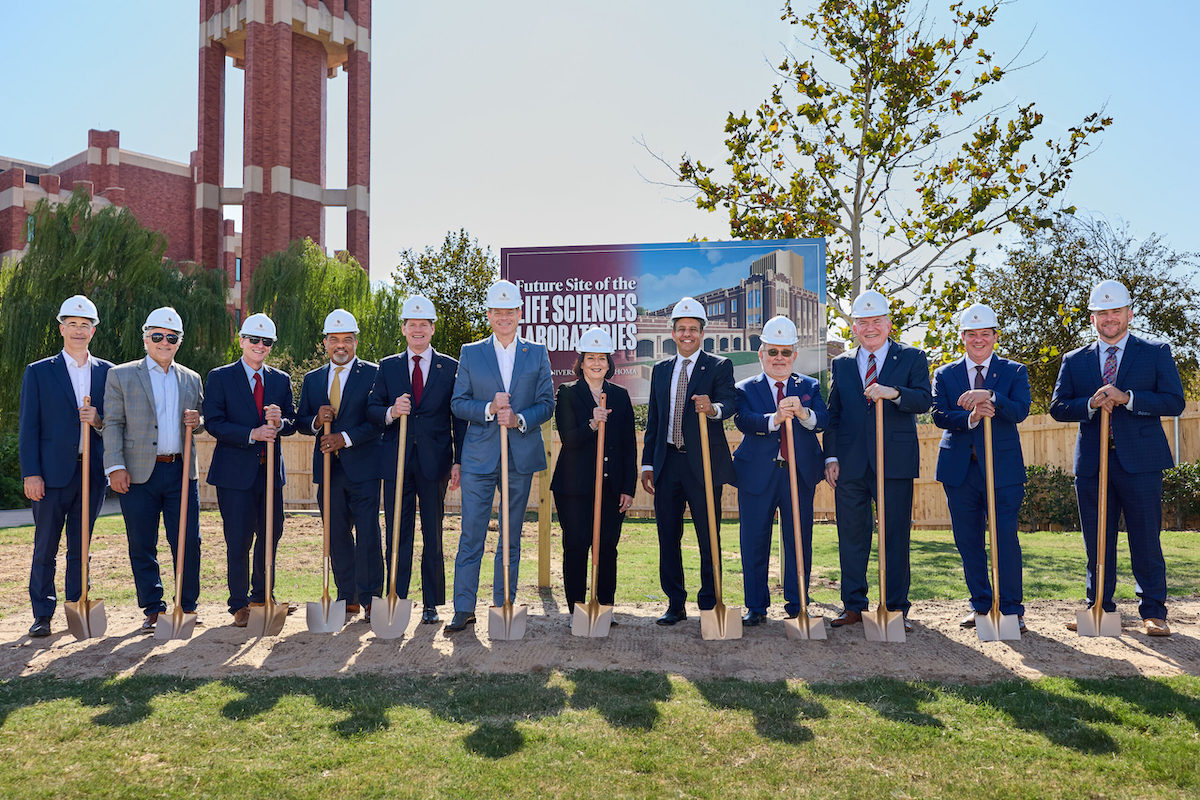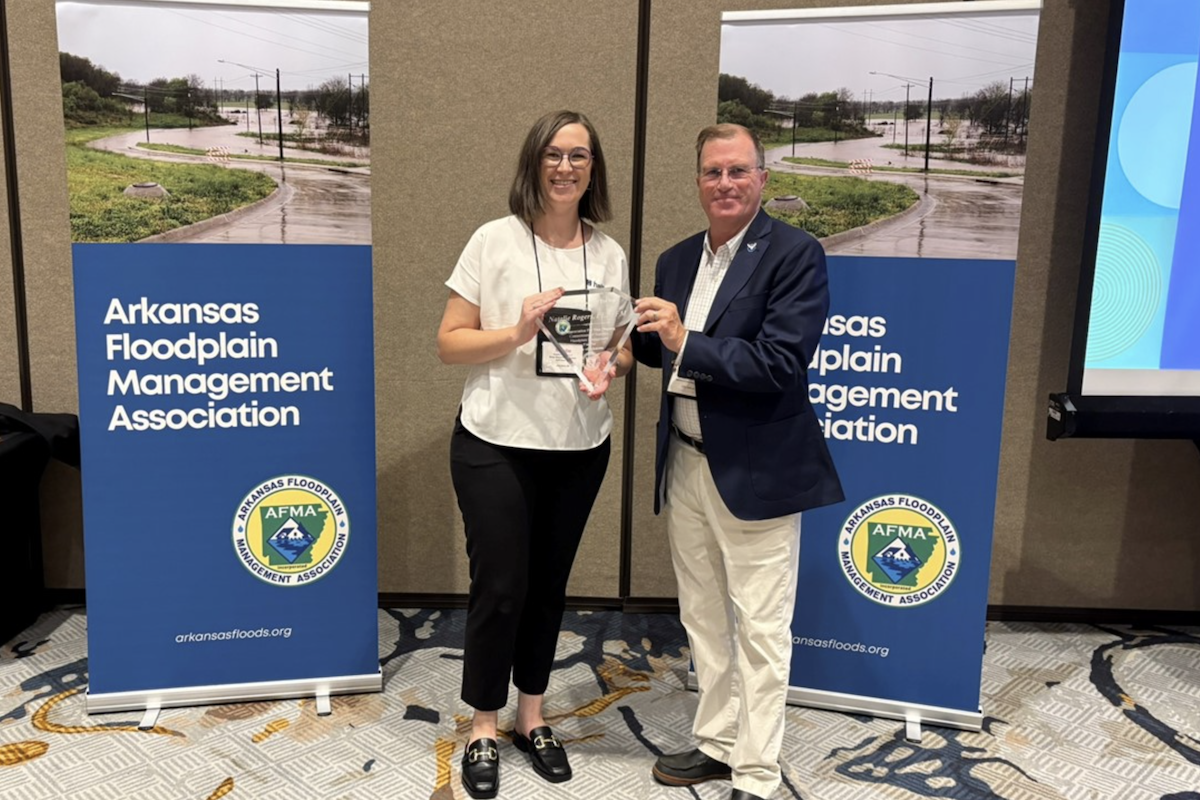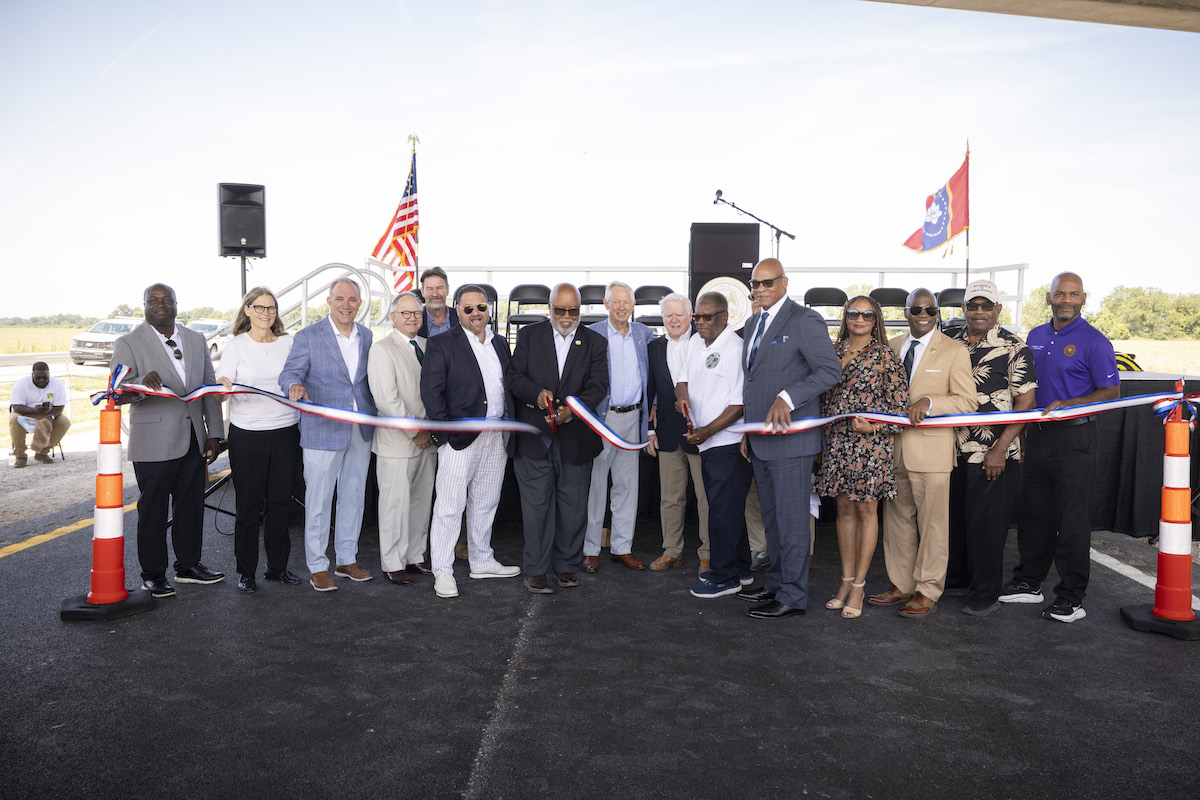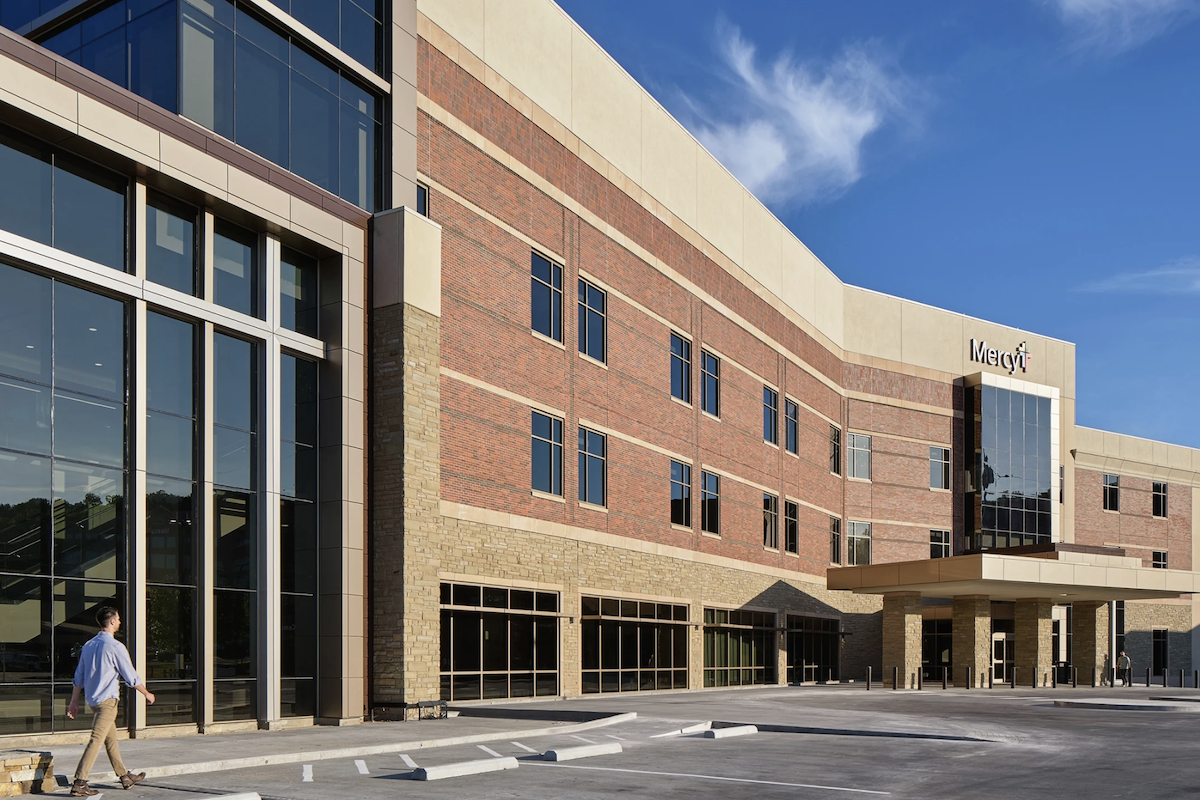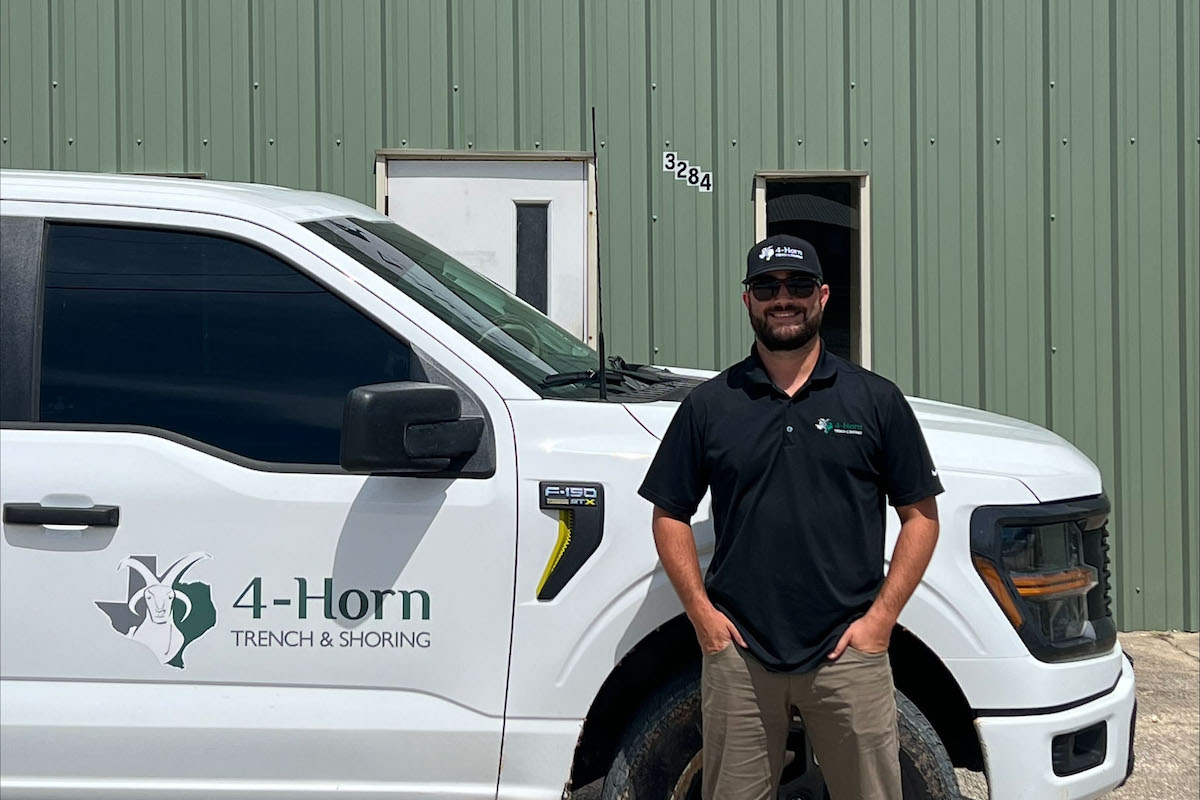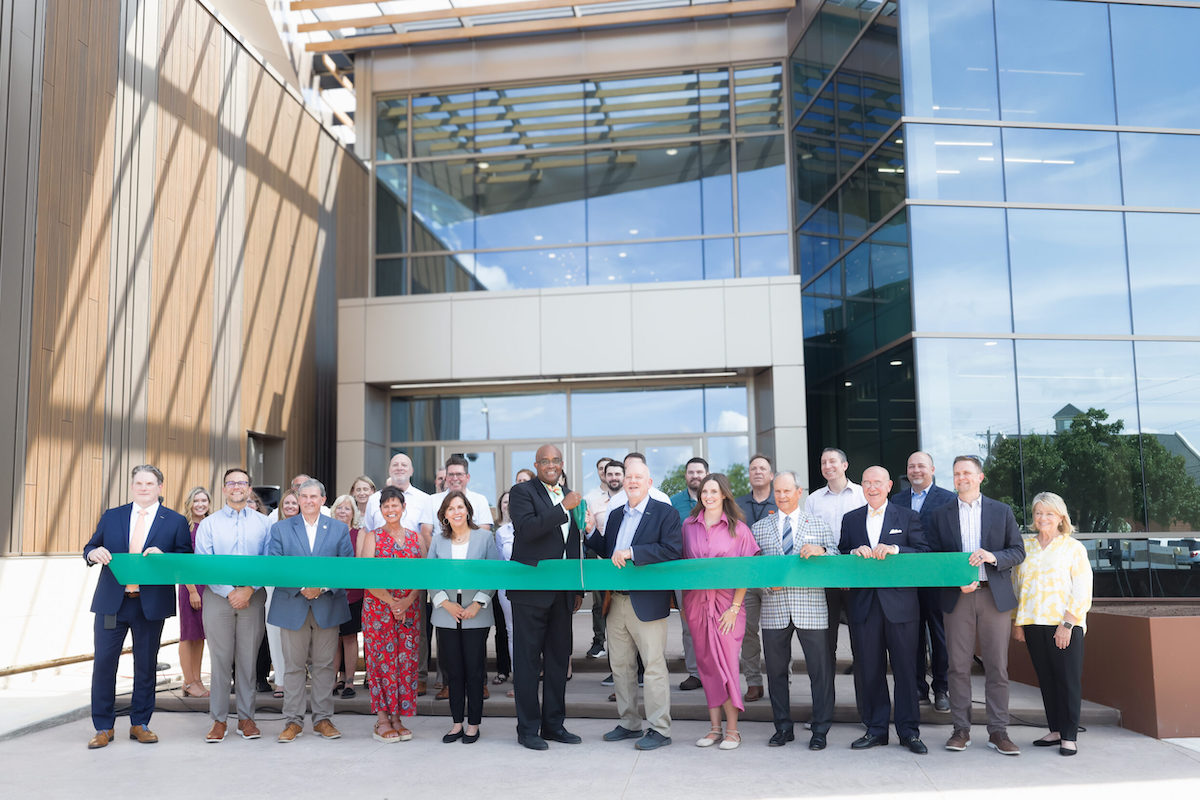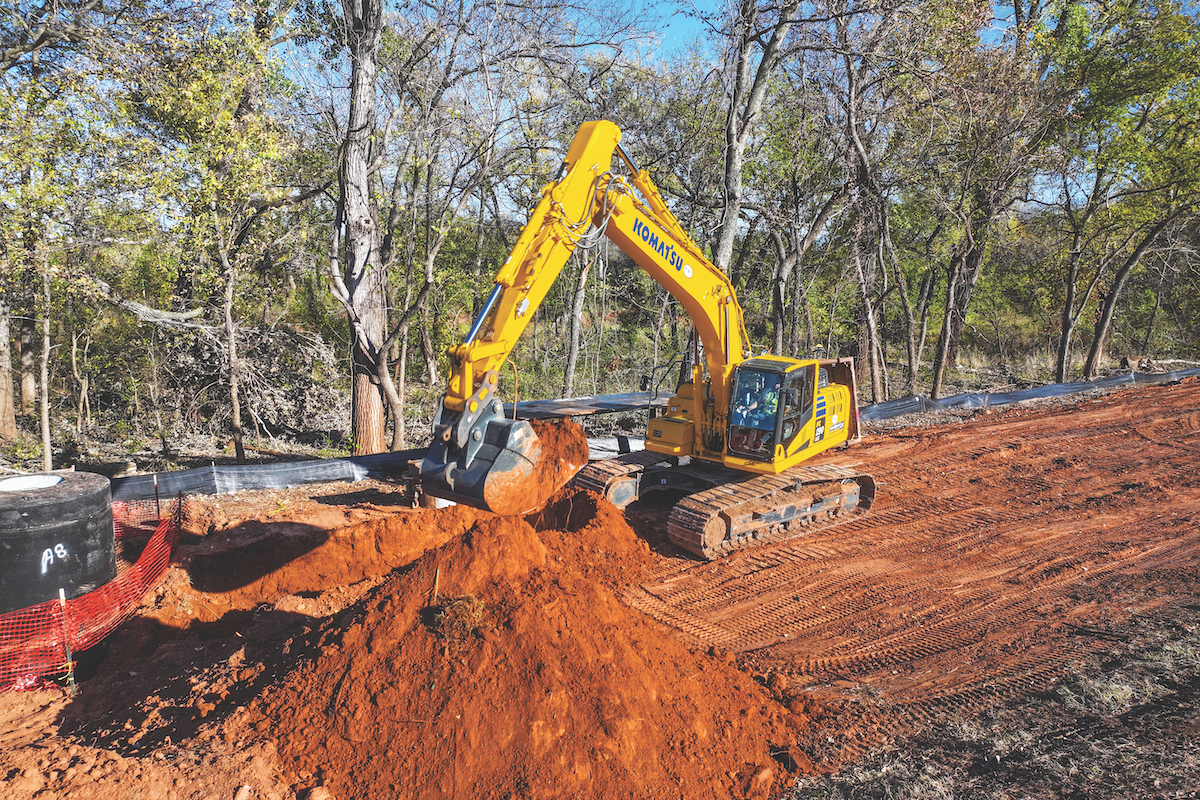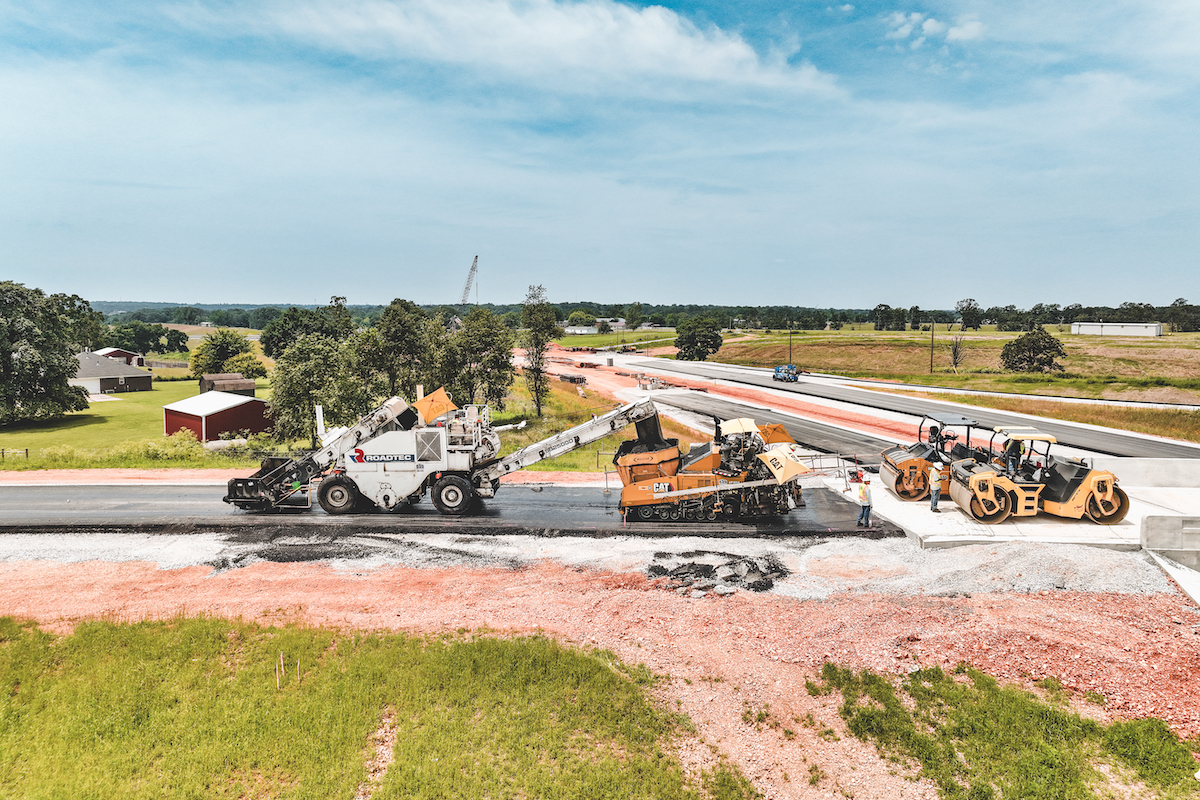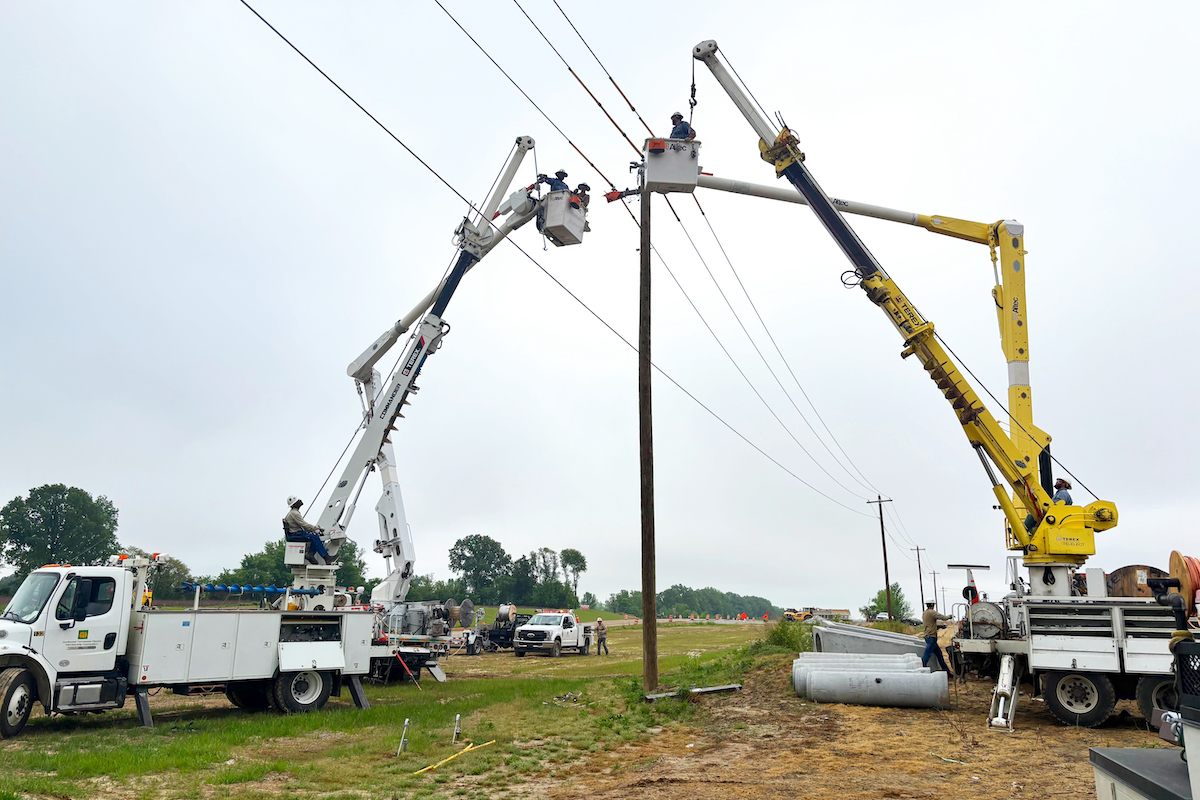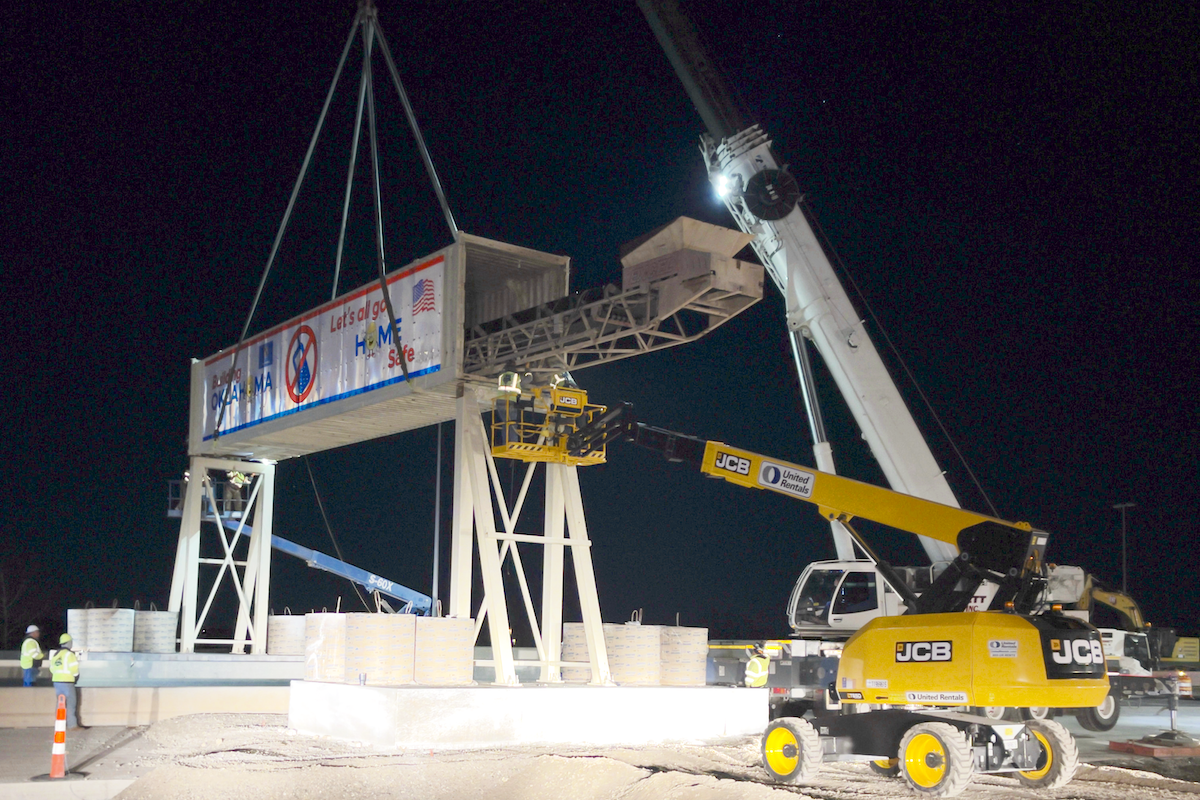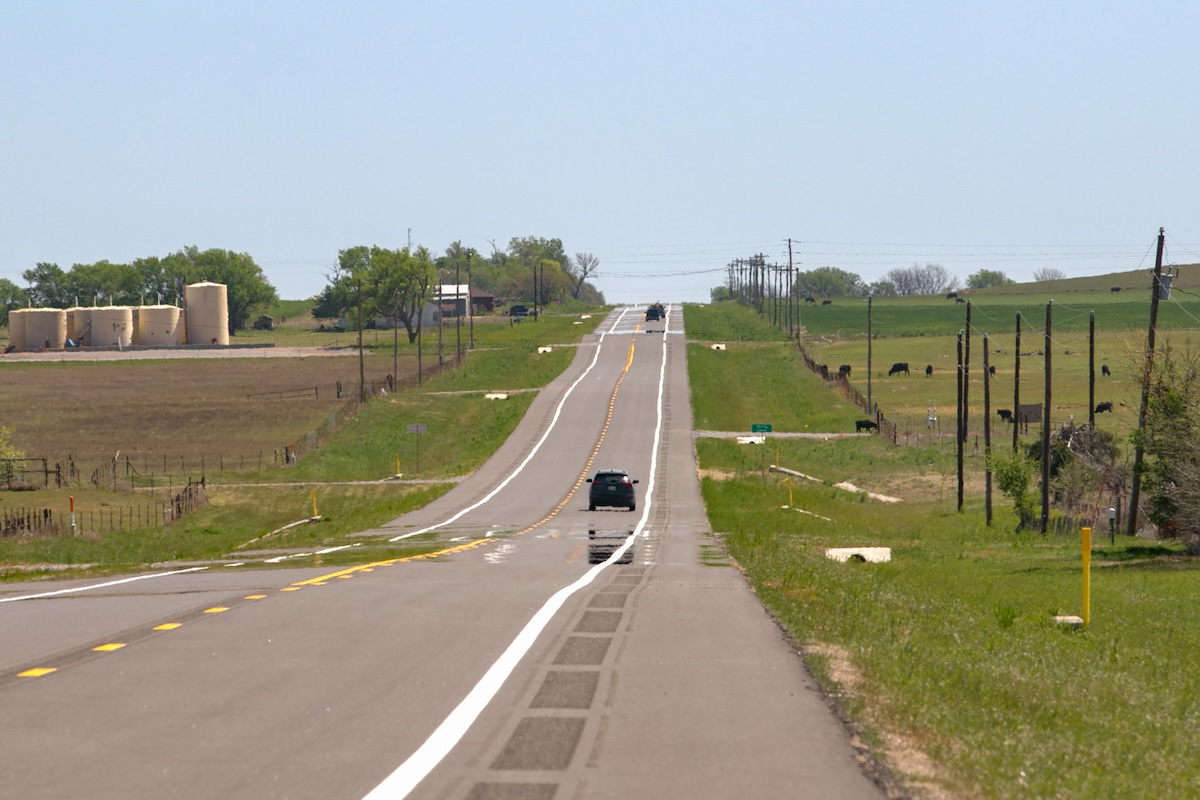“Owning a dam is like owning an old house,” said Kelly Payne, Vice President of Water Operations for the Lower Colorado River Authority (LCRA) in central Texas. “There is always something that needs a little TLC and maintenance.”
As the manager of a series of dams in what is called Flash Flood Alley, LCRA is well aware that keeping its dams in excellent condition means regular maintenance, and occasionally, a major overhaul such as the one happening now at LCRA’s Wirtz Dam. The dam, completed in 1951 and located just upstream from Marble Falls on the Texas Colorado River, needs more than a little work. LCRA is replacing all 10 floodgates with newly built gates, and either refurbishing or replacing its gate-lifting hoists and hoist bridges.
LCRA is installing the new floodgates on a working dam, painstakingly replacing one floodgate at a time to ensure the rest of the dam remains available and ready to respond to flooding as needed. The $76 million project, on which work at the site began in 2023, is managed in-house by LCRA. The general contractor is civil and marine construction specialist Massman Construction Co. under a construction manager at risk contract.
Wirtz Dam, which creates Lake Lyndon B. Johnson (Lake LBJ), is one of six dams in the series of Highland Lakes on the Colorado that flow through the Texas Hill Country from the Burnet/Llano area down to Austin. Two of the lakes — Buchanan and Travis — are water supply reservoirs that together provide water for more than 1.4 million people, as well as businesses, industries, and agriculture. Each of the six dams has hydroelectric turbines to help provide power to the Texas grid.
Nine of the old Wirtz floodgates date back 73 years to the dam’s construction. A 10th was added in the early 1970s when the gas-fired Thomas C. Ferguson Power Plant was built upstream of the dam on Lake LBJ.

| Your local Bomag Americas dealer |
|---|
| WPI |
The new 120,000-pound steel floodgates were designed by engineering firm Stantec with significant input from LCRA’s water engineering team to be “heavier with beefier arms” than the originals, as Payne described them, to meet the critical strictures of being in a flash flood zone and function well for many years to come.
The 32-foot-tall by 50-foot-wide gates are being fabricated by two firms: King Fabrication in Houston, Texas, and Thompson Steel Fab in Vancouver, Washington, with each making five gates. A key factor in choosing both was their American Institute of Steel Construction (AISC) structural bridge and hydraulic welding certifications.
The largest parts of the gates are the skin plates that hold back the water. The plates from Thompson were shipped to central Texas in four parts from Washington State, but only two parts from Houston by using oversized load routing. The skin plates are then welded together by Massman (also similarly AISC certified) and checked by third-party certified weld inspectors, and connected with the arms in a staging and assembly yard sited on shoreline land LCRA owns close to the dam on Lake LBJ. The lake’s namesake, former President Lyndon B. Johnson, was born and grew up in the Hill Country and was a fervent advocate for and supporter of LCRA during his service in Congress onward.
Much of the installation work is being done from a 100-foot by 80-foot construction barge on the lake with a 64-foot Liebherr 1300 Crane on it. The barge is anchored to the dam by movable structural steel anchor points mounted on it. Another 60-foot by 40-foot barge transports the gates and supplies from the staging yard, where they are loaded onto it by a Manitowoc 888 Crane. Two tugboats tend the barges.

| Your local Wirtgen America dealer |
|---|
| Kirby-Smith Machinery |
Lake waters are held back from each gate bay and spillway to enable gate replacement by a set of 30-foot-long by 3-foot-high hollow-steel bulkheads, called stop logs, that are successively fitted into slots on the lake side of the dam and filled with water. A crane attached to the monorail that runs atop the dam’s hoist bridge helps move and place them with the assistance of workers on the dam. Rubber seals on the stop logs ensure a watertight fit in the slot and among the stop logs.
“Otherwise, we'd have to significantly lower the lake to be able to do the work, and that's not really efficient,” Payne said.
To begin the gate replacement, the old floodgates are lifted out by the crane on the barge. Then the new ones are lifted in to replace them. “The gate bay has been surveyed several times to confirm the fit,” LCRA Lead Project Manager John Laisy said. “A highly skilled crane operator performs the lift, and several workers monitor the gate and use tag lines for positioning.”
The gate is then carefully slid into the gate bay in the dam. The crane operator has about 1.5 inches of leeway on either side of the gate in fitting the new floodgate into the existing gate bay.

| Your local Wirtgen America dealer |
|---|
| Kirby-Smith Machinery |
The steel from the old floodgates and hoist-bridge sections are recycled by Commercial Metals Company. “LCRA has very strict environmental requirements that don’t just meet regulations but also our own high internal standards,” Laisy said.
Temporary canvas containments on the downstream side of each gate bay spillway also address environmental concerns. “There's coating and painting work that has to be done and sandblasting to finalize the preparation of the existing gate bay,” Laisy explained. “We don't want any blasting sand or paint debris getting into the water.”
Several communities in the area of Wirtz Dam and further downstream draw their municipal water from the Colorado, including the city of Austin.
Rainfall in late July put the work on the water briefly on hold when the storm surge into Lake LBJ from the Llano River required floodgates to be opened. The increased water flow required the work barge to be motored by tugboat away from the dam to the staging site.

| Your local Trimble Construction Division dealer |
|---|
| SITECH Tri-Rivers |
“Very early on in the project we developed a flood plan with the contractor,” Laisy said. “In case of an extreme expected weather event, we have a barge anchor point to the south and a cove to the north of the dam that allow unhindered floodgate operations and protect the barges from the water flow that comes down through the lake.”
Older existing floodgates ideal for the path of the water release were opened to enable the storm surge flow. The surge flow also allowed the operations and project teams to further test three of the four new floodgates that were in place at press time under typical operating conditions.
“Those gates had already been tested and commissioned for service,” Laisy said. “So it was a great opportunity to release water and do a flow test with the gates, and make sure they work the way they’re supposed to. Those three new gates worked great.”
The semi-rural locale presented advantages while also requiring special efforts to ensure safety and site security.

| Your local Takeuchi Mfg Ltd dealer |
|---|
| Kirby-Smith Machinery |
“It's relatively easy to access the Wirtz Dam work site because it's not in the middle of a city, but it's also located in a small-town area,” Laisy said. “So early on, our project team had some very important and helpful meetings and onsite communication with the local law enforcement and first responders. We really make sure we cover every base that we feel is key to the safety of the public, our employees, and the contractor’s employees.”
Work on the Wirtz Dam project is expected to finish in mid 2025. It follows similar recent floodgate projects on LCRA’s Tom Miller Dam that forms Lake Austin and Buchanan Dam that forms Lake Buchanan. In addition to its dams, lakes, and waterways, LCRA has an extensive park system, five electric generation plants in addition to its hydro generators on the dams, and power lines throughout Texas. The nonprofit public utility created in 1934 by the Texas Legislature states its “mission is to enhance the lives of the Texans it serves through water stewardship, energy and community service.”
That includes substantial collaborations with the commercial construction industry in its activities. “From 2010 through 2024, LCRA has invested over $187 million in capital projects at the Highland Lakes dams and Lake Bastrop and Lake Fayette,” Payne said. “From this fiscal year through 2029, our capital plan has over $96 million in these same types of projects.
“Dams cost a lot of money, they're very hard to construct, and we don't want to have to try to replace dams,” he concluded. “We want to take care of the ones we have and make them last well into the future.”

| Your local Hitachi dealer |
|---|
| CLM Equipment Co |
| ASCO Equipment |
- Owner: Lower Colorado River Authority
- General Contractor: Massman Construction Company, Overland Park, Kansas; Thomas Massman, Project Manager
- Engineer: Stantec Consulting Services, Inc., Irvine, California; Martin Ellis, Project Manager
- Environmental Assessment Services: Blanton & Associates, Inc., Austin, Texas; Gary Galbraith, Project Manager
- Fencing: Woolery Custom Fence Company, Inc., Elgin, Texas
- Mobile Crane Services: TNT Crane & Rigging, Inc., Houston, Texas
- Diving Services: Sandra C. Wilgus, Burkeville, Texas



















